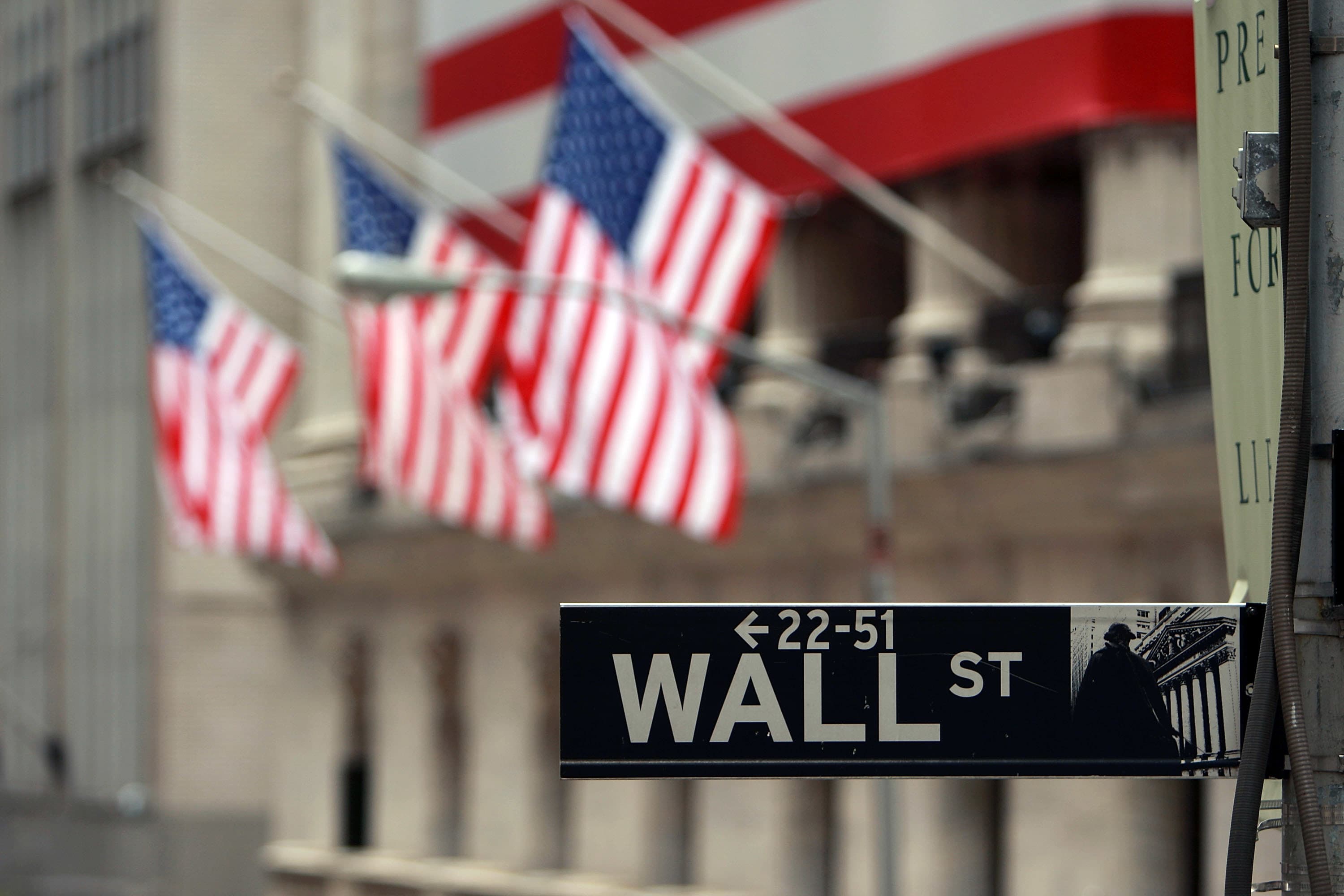
Spencer Platt | Getty Images News | Getty Images
The S&P 500 is up about 5% since the end of July, and that higher market historically would be a sign President Donald Trump will remain in the White House, if stocks hold their gains into the election.
But strategists say the so-called stock market indicator may not be working this year, and it looks like the market is betting on a win by former Vice President Joe Biden instead. Biden leads by 8.9% in RealClearPolitics average of major polls.
“You could say the market is discounting that Trump is going to lose,” said Daniel Clifton, Strategas Research head of policy research. “Normally, the S&P predicts the presidential election, but that’s usually confirmed by the election portfolio.”
Clifton said a portfolio of stocks that should do well during a Biden presidency have been outperforming Trump stocks. For instance, the Invesco Solar ETF TAN has gone from $45.01 on July 31, to $74.63, up 1.5% Monday in a down market. Biden is a proponent of more clean power and solar energy.
Sam Stovall, CFRA chief investment strategist, said since World War II, there have been only two instances where the president or his party lost in November, when the market was higher between July 31 and the November election.
Stovall believes this year could be similar because there is a geopolitical disruption — the coronavirus pandemic. One of the years when the S&P indicator didn’t work was 1968, when the nation was divided over the Vietnam War. There were protests and presidential candidate Robert Kennedy and civil rights leader Martin Luther King were both assassinated. That year, the S&P 500 was up 5.8%, and Americans elected Republican Richard Nixon president.
In 1980, Democrat Jimmy Carter did not win re-election. During his term, 52 American diplomats and citizens were held hostage in the U.S. Embassy in Tehran for more than 400 days, and were released when Republican Ronald Reagan was inaugurated.
Stovall said those two election periods were affected by geopolitical disruptors, and this year the market is already pricing in some of Biden’s policies.
“I think the market is moving 40% on things getting better with Covid, and then 60%, based on the election, the belief we should end up with a Democratic victory and a likely Democratic sweep, that would increase the possibility of economic stimulus coming from Washington,” said Stovall.
Biden ‘portfolio’ higher
Matthew Bartolini, Head of SPDR Americas Research at State Street Global Advisors, said the Biden portfolio is showing up in clean energy ETFs, like SPDR S&P Kensho Clean Power ETF CNRG, a clean energy fund, and in SPDR S&P Kensho Intelligent Structures SIMS, an ETF focused on sustainable, intelligent infrastructure.
“[CNRG] is one of the best performing stocks in our lineup…We’ve seen a vast move upward. 160% since March 23,” he said. SIMS is also up about 80% this year.
For a Trump portfolio, he would include ETFs for metals and mining and traditional infrastructure. Those would be XME, the SPDR S&P Metals and Mining ETF, and XLI, Industrial Select Sector SPDR Fund ETF, Bartolini said.
Trump and Biden, are diametrically opposed on trade. “Biden takes more of a globalist view, repealing tariffs that have been put in place,” said Bartolini. He said he would suggest SPDR S&P China ETF GXC, and FEZ, the SPDR Euro Stoxx ETF.
Bartolini said Trump’s America first strategy is more U.S. focused, so his policy may positively impact ETFs that represent American small and mid-cap stocks, such as SPSM, SPDR Portfolio S&P 600 Small Cap ETF and SPMD, the SPDR Portfolio S&P 400 Mid-cap ETF.
Biden wants to raise taxes so that may hurt sectors with high effective tax rates, like consumer staples and retail, Bartolini said. The retail ETF is XRT, SPDR S&P Retail ETF.
“The market is starting to believe Joe Biden will not raise the corporate tax rate until 2022. There’s a possibility he would raise taxes in 2021, but would have a phase-in,” said Clifton. “From a market perspective, the Strategas high tax basket which should be underperforming is not underperforming. The market is saying ‘we’re really not sure taxes are going up in 2021.'”




